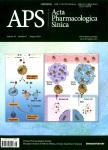Overexpression of heat-shock protein 20 in rat heart myogenic cells confers protection against simulated ischemia/reperfusion injury
Overexpression of heat-shock protein 20 in rat heart myogenic cells confers protection against simulated ischemia/reperfusion injury作者机构:Department of Physiology and Pathophysiology Basic Medical College Key Laboratory of Molecular Cardiovascular Biology Ministry of Education Peking University Beijing China
出 版 物:《Acta Pharmacologica Sinica》 (中国药理学报(英文版))
年 卷 期:2005年第26卷第9期
页 面:1076-1080页
核心收录:
学科分类:1007[医学-药学(可授医学、理学学位)] 1006[医学-中西医结合] 100706[医学-药理学] 1002[医学-临床医学] 100602[医学-中西医结合临床] 10[医学]
基 金:the National Basic Research Program of China(No G2000056908)awardet to Xian WANG
主 题:reperfusion injury adenovirus apoptosis necrosis heat-shock proteins
摘 要:Aim:To explore whether overexpression of the small heat shock protein HSP20 inrat cardiomyocytes protects against simulated ischemia/reperfusion(SI/R)***:Recombinant adenovirus expressing HSP20 was used to infect rat H9c2cardiomyocytes at high efficiency,as assessed by green fluorescent protein.H9c2cells were subjected to SI/R stress;survival was estimated through assessment oflactate dehydrogenase and cell apoptosis through caspase-3 ***:Overexpression of HSP20 decreased lactate dehydrogenase release by 21.5% andcaspase-3 activity by 58.8%.Pretreatment with the protein kinase C inhibitor Ro-31-8220(0.1 μmol/L)for 30 min before SI/R canceled the protective effect of *** selective mitochondrial K+awP channel inhibitor 5-hydroxydecanoate(100 μmol/L)had a similar ***,the non-selective K~+ATPchannel inhibitorglibenclamide(100 μmol/L)had no significant ***:These dataindicate that the protective effect of HSP20 in vitro is primarily due to reducednecrotic and apoptotic death of cardiomyocytes,possibly via the protein kinaseC/mitochondrial K~+ATP pathway.



